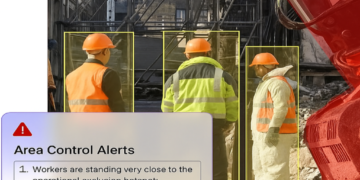Court decisions in the UK are also vital in protecting human rights. Under the Human Rights Act 1998, UK courts are required to interpret legislation, as far as possible, in a way that is compatible with the European Convention on Human Rights. When legislation is found to be incompatible, courts can issue a “declaration of incompatibility,” although Parliament remains sovereign and must choose whether to amend the law.
The Tribunals system in Wales includes devolved bodies like the Welsh Language Tribunal, Special Educational Needs Tribunal for Wales (SENTW), and Residential Property Tribunal. These provide more accessible and specialist forums for resolving disputes in devolved areas and are tailored to Welsh law and policy.
To sum up, law court decisions in the UK are a cornerstone of the legal system. They create precedent, ensure justice is served, and influence statutory interpretation. Through a combination of consistency, transparency, and reasoned analysis, the UK judiciary plays a fundamental role in maintaining the rule of law and ensuring fairness in society.
The Welsh Government has taken steps to influence justice policy even without full control over the system. For instance, it funds services that support victims of crime, family mediation, and youth offending teams. While it cannot currently legislate on criminal law or court structures, it plays a growing role in shaping how justice is experienced on the ground.
The County courts deal with civil cases, such as housing and landlord-tenant issues. They also handle family law cases, including divorce and child custody. Administrative duties in these courts include case management, scheduling, and ensuring that the court’s resources are effectively used. These courts also have specialized divisions to handle specific types of cases, like the family court and the small claims court.
Above the High Court and Crown Court is the Court of Appeal, which is divided into the Civil Division and the Criminal Division. Appeals are reviewed from lower courts and sets legal principles that are followed by lower courts. At the top of the hierarchy is the Supreme Court of the United Kingdom, which is the ultimate court of appeal in civil and criminal cases for all parts of the UK, except for criminal cases in Scotland.
At the higher end of the court system, the Crown Court deals with more serious criminal cases, such as rape and drug trafficking. The Crown Court’s administration is more complex, with a greater focus on managing jury trials and ensuring that both prosecution and defence have adequate time and resources to prepare their cases. The Crown Court is supported by various staff, including clerks, court officers, and legal advisors who assist judges in case management and procedural matters.
Northern Ireland also has a separate legal system that closely resembles that of England and Wales but includes its own court hierarchy. The Northern Ireland courts deal with both civil and criminal matters, and the Supreme Court of the UK remains the final court of appeal.
One of the key duties of law courts in the UK is to ensure that those who have been accused of crimes are given a fair trial. This includes examining the evidence presented by the prosecution and defense, ensuring that the rights of the accused are respected, and providing a verdict based on the law. The courts are also responsible for ensuring that sentences are proportionate to the crime committed and that the punishment serves both justice and rehabilitation. In cases involving serious criminal offenses, such as murder or terrorism, courts must ensure that the proceedings are conducted with the utmost care and thoroughness.
For individuals with specific language needs, many UK courts offer translation and interpretation services to ensure that non-English speakers can participate fully in legal proceedings. Interpreters are available for both written and spoken communication, allowing individuals to understand the details of their case and communicate effectively with their legal representatives.
Family courts in particular provide dedicated services for those involved in child custody, divorce, and domestic violence cases. These courts aim to reduce the emotional and psychological impact of family disputes on all parties, particularly children. In addition to providing legal assistance, family courts often work with social services and child welfare organizations to ensure that the best interests of children are prioritized during proceedings.
In recent years, the UK court system has undergone reforms to improve efficiency, including the growth of online hearings, digital case management, and alternative dispute resolution methods. These changes have helped to update the justice process and alleviate pressure on the courts.
The Welsh Language Act 1993 and the Government of Wales Act 2006 establish that Welsh and English have equal status in court proceedings in Wales. This means individuals have the right to use the Welsh language in legal proceedings, and courts must make translation and interpretation services available. When you adored this post as well as you wish to obtain details relating to law firm marketing Arizona i implore you to visit the site. Many judges and legal professionals in Wales are bilingual.

















